160classbuck
New member
Well I have watched topics on TBN but this is my first post.
I have a 10' cultipacker with no manufacturer ID on it that is in need of some repairs. The wheels measure approximately 11.5" and are of split design. Some of the wheels have cracks in them and some have pieces completely broken away. I have managed to remove the end plates, clamp on collars and all the wheels. I know I could just remove the bad wheels and slide the collar clamps in further and go but prefer to replace what I can with as close to original parts as possible.
The help I need is:
1. Where to buy / find replacement split rollers
2. For the split rollers I have, some are riveted together, some appear welded and others are come apart. Does this matter?
3. The end of the shaft fit into what I will call a cup bearing that appears to have a soft metal (maybe lead) in it that is being worn away, how do I repair / replace that?
4. Any idea on who manufactured the packer?
Here are pictures of what I have.
Thank you for any replies.
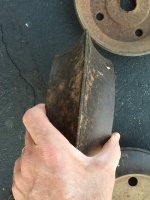
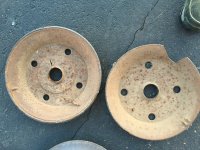
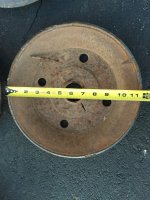
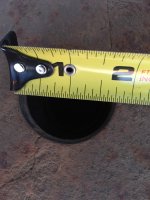
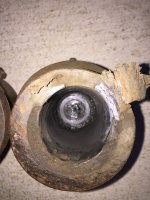
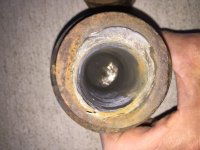
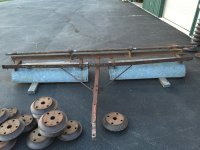
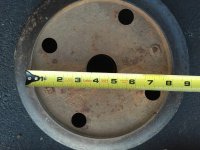
I have a 10' cultipacker with no manufacturer ID on it that is in need of some repairs. The wheels measure approximately 11.5" and are of split design. Some of the wheels have cracks in them and some have pieces completely broken away. I have managed to remove the end plates, clamp on collars and all the wheels. I know I could just remove the bad wheels and slide the collar clamps in further and go but prefer to replace what I can with as close to original parts as possible.
The help I need is:
1. Where to buy / find replacement split rollers
2. For the split rollers I have, some are riveted together, some appear welded and others are come apart. Does this matter?
3. The end of the shaft fit into what I will call a cup bearing that appears to have a soft metal (maybe lead) in it that is being worn away, how do I repair / replace that?
4. Any idea on who manufactured the packer?
Here are pictures of what I have.
Thank you for any replies.








